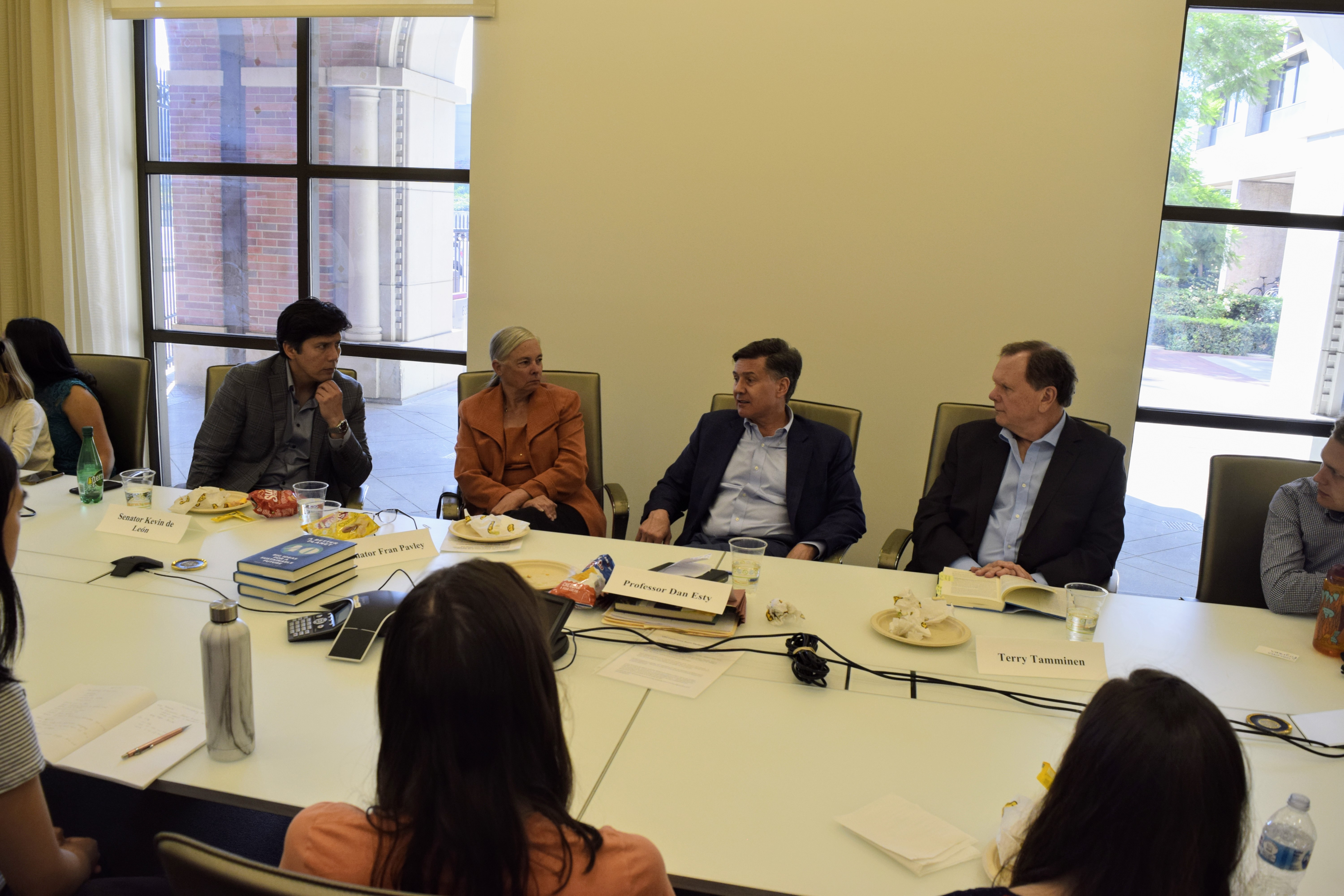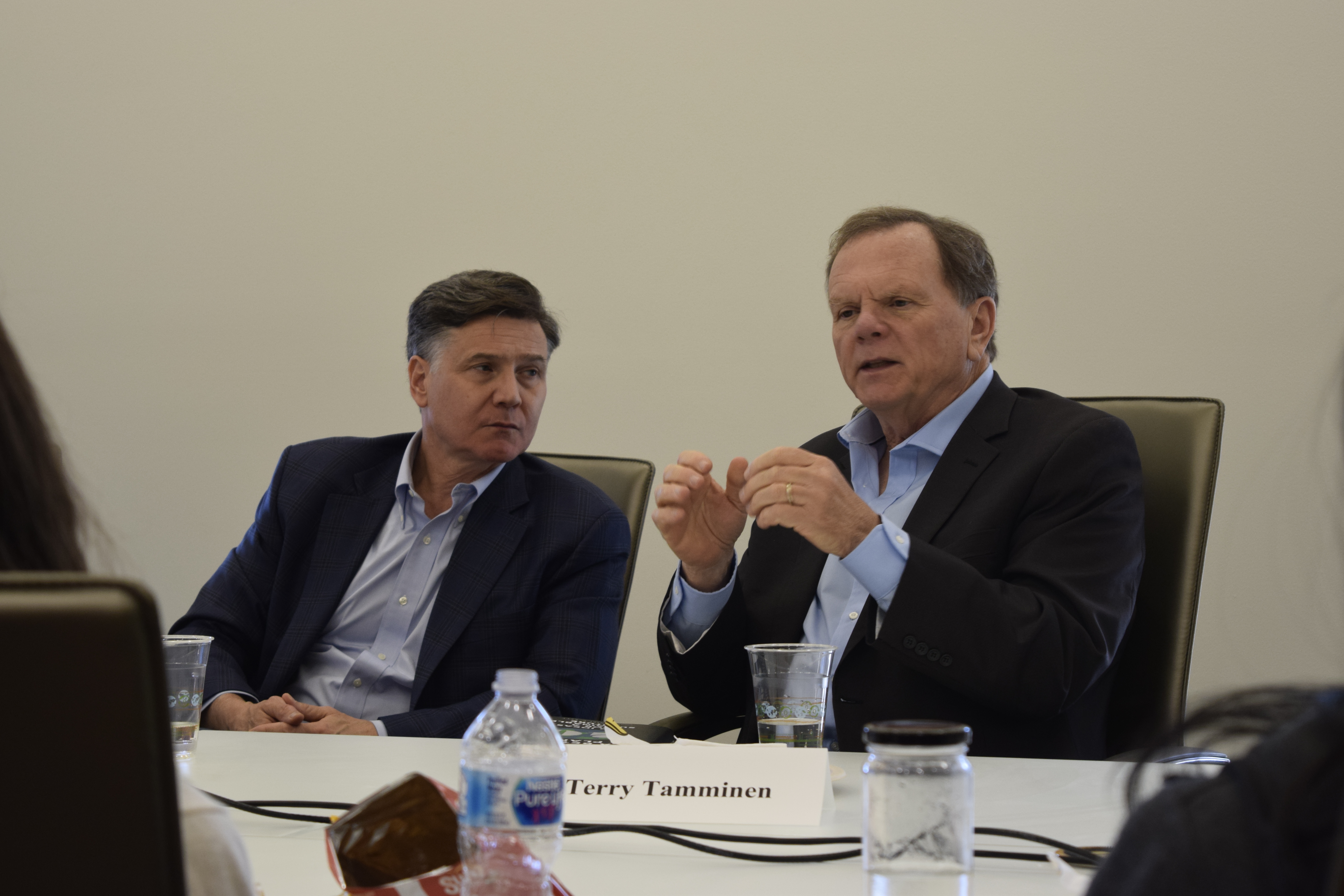Daniel Esty, the Hillhouse Professor of Environmental Law and Policy at Yale University, visited the Schwarzenegger Institute on October 28th to talk about his new book, A Better Planet: 40 Big Ideas for a Sustainable Future with USC Price School of Public Policy students. Former Cal-EPA Secretary and Schwarzenegger Institute Advisory Board Member Terry Tamminen led the conversation with Professor Esty as he shared fresh-thinking sustainability ideas to a roundtable of students. Senate Pro Tem Emeritus Kevin de León and former Senator Fran Pavley also participated in the roundtable conversation and shared their personal perspectives on the importance of using fresh public policy ideas when drafting legislation.
Professor Esty based his sustainability talk around the the topics covered in the book’s 40 essays – including ecology, environmental justice, big data, public health, and climate change – and began the conversation with a 50-year overview of the history of environmental policy making in the United States. Citing the Clean Air Act, the creation of the United States Environmental Protection Agency and his personal experiences along the Natchaug River in Connecticut, he made the case that the United States has made great environmental progress in the past but the pace of that progress has slowed in the last ten years. Professor Esty then explained how his book explores the reasons behind this shift and what policy is needed to rekindle public interest in environmental protection.
One of the factors impeding environmental action is the debate over whether regulatory or market-based mechanisms should be used. Professor Esty and Terry Tamminen discussed using market-based mechanisms versus regulatory solutions to reduce greenhouse gas, plastic use and other pollution. Esty advocated for establishing a new starting point principal that there should be no externalities. “If you are causing environmental harm, you should pay for it," said Esty. "If you are using a public resource you should pay for it. There should be no discounts. People rarely take care of scarce resources, like water, if they don’t pay for it.” Esty also believes that the adoption of a common carbon price is possible primarily because all governments have a need for revenue and one of the easiest ways to generate that revenue is through carbon pricing. Terry responded with a statistic from his book Lives Per Gallon: the True Cost of Our Oil Addiction stating that due to the negative externalities of petroleum use we actually pay an additional $7 per gallon of gasoline that we use.
Although Terry Tamminen and Professor Esty offered distinct perspectives on mechanisms to tackle rising greenhouse gas emissions, both agreed that a combination of all approaches is necessary. Professor Esty also emphasized that bipartisanship, leadership and innovation are key to tackling climate change and are also common themes throughout his book– themes that he discussed with the attending students in a long question and answer session.
Professor Esty concluded his talk by explaining that when comes to the environment he is a short term pessimist and a long term optimist. He believes that 21st century voters are essential green consumers and investors and that this shift is changing corporate behavior and decision making.


